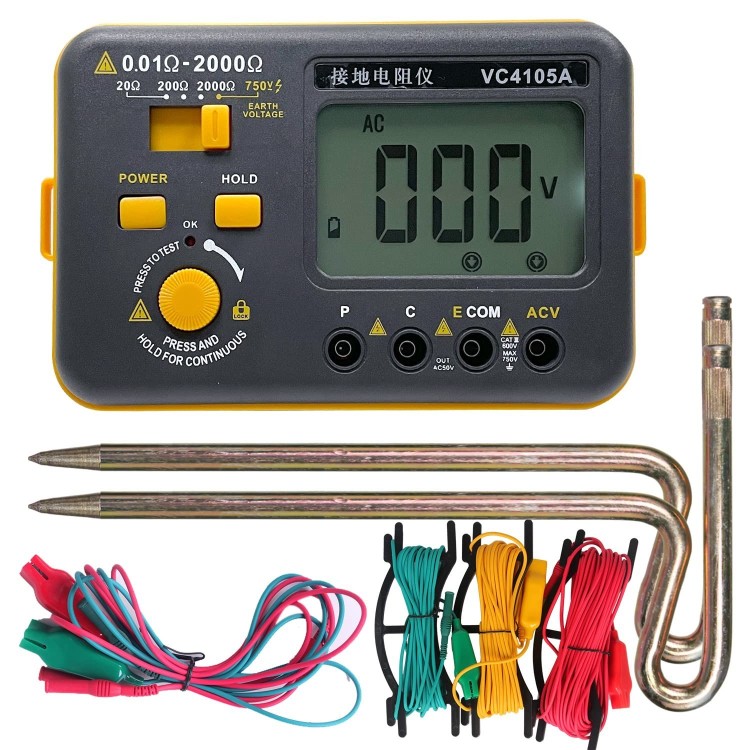
Earth Resistance Tester

An Earth Resistance Tester (also known as a ground resistance tester or ground tester) is an electrical instrument used to measure the resistance of the earth connection in grounding/earthing systems. It helps ensure proper functioning of earthing installations, which are crucial for electrical safety by preventing electric shock hazards and equipment damage. The tester works by injecting a test current into the earth and measuring the resulting voltage drop, calculating the resistance in ohms. It is widely used in electrical installations, substations, telecommunication towers, and industrial plants to verify that grounding systems meet safety standards.
- Measurement Range: Provides a wide measuring range (typically from 0.01 Ω to several kΩ).
- Test Method: Supports 2-pole, 3-pole, or 4-pole methods for accurate resistance measurement.
- Digital Display: Large LCD or digital screen for clear and precise readings.
- Auto/Manual Range Selection: Automatically selects the appropriate measuring range or allows manual adjustment.
- Data Hold & Storage: Freezes the reading on screen and some models store multiple test results.
- Safety Standards: Complies with international safety standards (CAT II/III ratings, IEC standards).
- Low Battery Indication: Alerts when the battery is weak.
- Portable Design: Compact, lightweight, and easy to carry for fieldwork.
- Additional Functions: Some advanced models also measure soil resistivity, continuity, and earth voltage.
- Durability: Rugged casing with dust and moisture protection (IP-rated in many models).